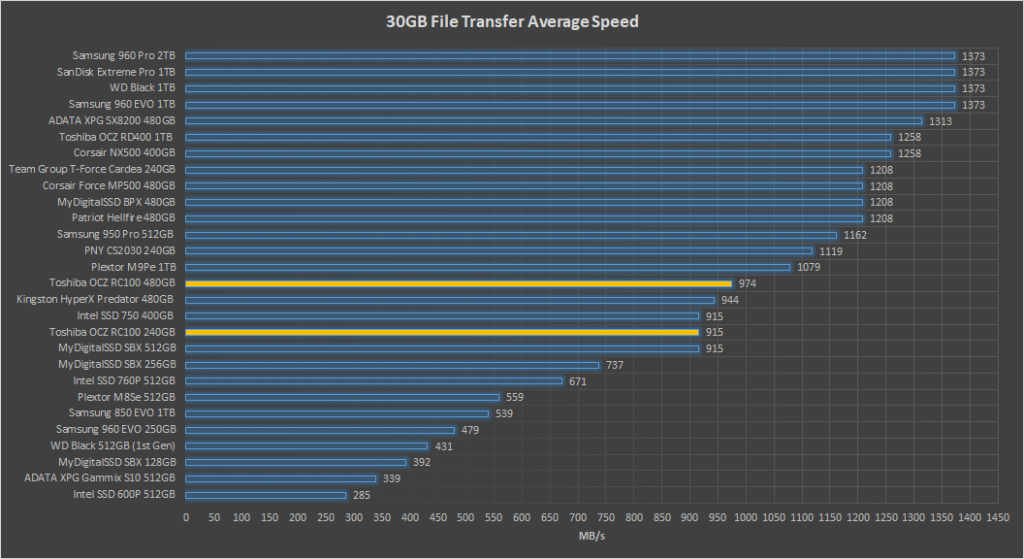REAL WORLD FILE TRANSFER
We also wanted to see how performance was in a real-world use when transferring large files to the SSD. For this test, we are going to simply stress write performance by transferring over a 30GB folder of movies off of a 250GB Samsung 960 EVO to the test SSDs and time how long it takes. Once complete we can calculate the average speed.
With averages of 914MB/s and 974MB/s, the OCZ RC100 performed admirably in this test. It even outperformed the 480GB Intel 760P and 250GB Samsung 960 EVO. To push things even harder, we ran another transfer after the first and on the second run we saw the speed actually improve as well. So far, so good.
POWER CONSUMPTION
For our power consumption testing, we have the drive connected to the system as a secondary drive. To record the wattage, we are now utilizing a Quarch Technology Programmable Power Module. It allows us to accurately measure power consumption over time and is flexible enough to allow us to test any SSD that comes our way.
Our power analysis may change as time goes on, but for now, we are looking at just a few metrics with the main goal of measuring our results against the manufacturer’s ratings. Because most consumer systems are at idle for about 80% of the time, idle power consumption is an important measure to look at when understanding the efficiency of a drive.
First up we have our results with Active State Power Management disabled. Here they averaged just over 1.05W at idle. These results are on the lower side and nice to see when compared to other drives.
In the chart above, with ASPM enabled, we can see that it consumes even less power. Here, the RC100 consumes just 0.38W, less than half of what it did before and similar to the ADATA XPG SX8200 we just reviewed.
POWER EFFICIENCY
Finally, we wanted to post up a graph of the power efficiency of the SSDs in write transfers. We are looking at MB/s per Watt in this graph. The higher the result, the better.
The chart above shows us just how efficient an SSD is in writing data. Here we can see that the Toshiba RC100 is extremely efficient, more so than any other SSD we have tested like this before. With an average of nearly 500MB/s per Watt, it now sets the standard for write efficiency. Wow, that is incredible right there. They really weren’t kidding when they said it was 70% more efficient.
 The SSD Review The Worlds Dedicated SSD Education and Review Resource |
The SSD Review The Worlds Dedicated SSD Education and Review Resource | 

